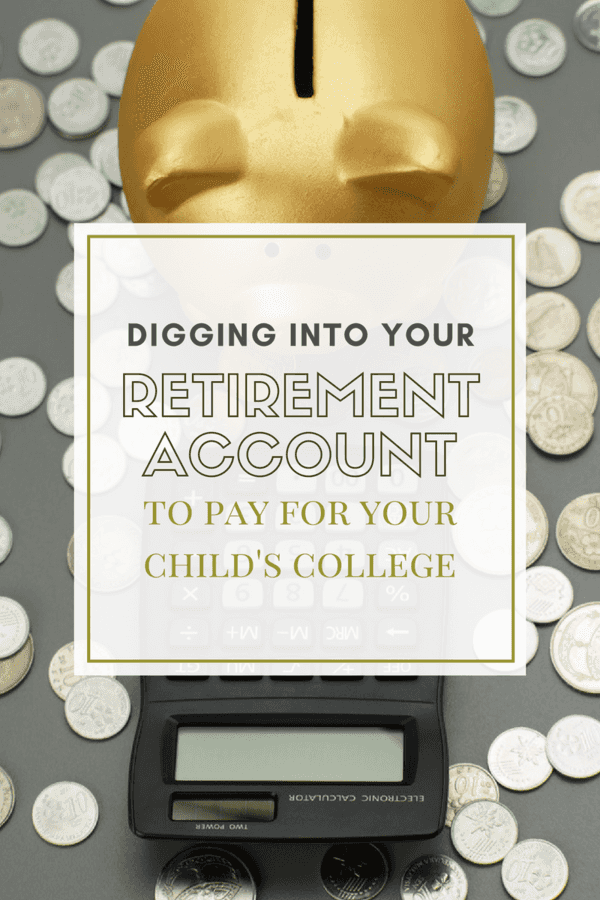
Students have headed back to school this fall – some, in Elementary, others in high school … and for some of us, students headed to college.
If you are one of the thousands of parents with a child headed off to college this fall, yat some point, you were reminded of the costly trade off for their desire to achieve their degree.
Many of those thousands of kids are headed back without a college fund – they are taking every opportunity to sign up for loans, and some, gaining help from their parents. If you are a parent, at some point you may have considered your own retirement savings to help fund their degree.
E-Trade recently reported that for 1/3 of parents, putting money away for their retirement was their greatest obstacle in saving for their child’s higher education. Other items that proved difficult to hurdle were paying down debt, house payments, health care and day to day expenses (utilities, groceries & more).
When it comes to competing priorities, parents face the stress of uncertainty – what to do first, and where to prioritize their efforts. Retirement, should be your goal – at least LONG term. The other areas, however, are just as important too – taking advantage of your 401K for the tax savings and employer match opportunities, THEN, contributing to an IRA, paying down debt, establishing a savings fund and saving for college.
Unfortunately…. paying yourself first is essential in order for you to actually be able to retire with a considerable amount that will be enough for you to live on without having to rely on work at an older age.
So what are the TOP pieces of investment advice you should always keep in mind when it comes to college and retirement planning and whether or not you should dip into your account to help defray the cost?
#1 – Start Saving Early
By starting early on, you have the advantage of time – and money, compounded over a long period of time, will always help you long term. The best thing you can do as a parent is teach your children financial responsibility – responsible financial planning, and an opportunity they can take advantage of to start putting away money as early as possible.
#2 – Match your Employer’s 401K Contribution
Approximately 30% of American employees do not contribute enough to the their 401K to capture their employer’s matching contribution. MANY employers offer a match – dollar for dollar on the first 3% or more of your paycheck in 401K retirement plan contributions.
If you aren’t sure if your employer offers a match, Human Resources is a great place to ask.
#3 – Invest for the LONG Term
When you decide to put away for retirement you must accept that investing in the market is something that you do long term. Do not expect huge results after a few months. What is important is that you leave your money to work for you for years – not months, but years. Automate your contributions, and ensure that you follow up on your investments occasionally (or, any of these life events). If you are not prepared to be in it for the long haul, then you are not going to win with your investments.
#4 – Eliminate your Debt
Tackling your debt is going to take some pretty serious sacrifice – which means you may have to do something different. out of the ordinary – something out of your comfort zone. You will have to give up some of the things you have perhaps gotten yourself accustomed to .. things that you might think are necessary but really might not be all that necessary to live.
Paying off your debt can change your entire mentality. But to get to that point, you need to make some sacrifices to curb your spending, say no to yourself, forego the possibility of a NEW car from the local dealership, and perhaps cut back on the holiday gifts.
#5 – Don’t Dip into your Retirement Account
Parents who haven’t saved enough for their child’s college .. or, haven’t saved anything at all, may find themselves dipping into their retirement account to contribute to their child’s college fund.
Withdrawals and loans can hurt your nest egg – not only will you incur an early withdrawal penalty, have some tax implications, and even worse, you will also lose the benefit of time being on your side when you work hard to try to put that money back into your account.
While not all children may go to college, chances are that at least one of your children will – and although the cost of their college education might just be one that they can pick up on loans, if you are thinking forward, chances are you might want to help set them off on the right foot – without having to rely on loans.
By starting a savings plan early, you can help reduce that burden of high debt that they might have from paying for their education. And while not everyone may agree that it’s the parents responsibility, here are some things to keep in mind:
- It’s better to save now than to try to save later.
- It’s better to help them start off on the right foot with some advance planning than to see them struggle with debt and loans at a relatively early age.




Leave a Reply
You must be logged in to post a comment.